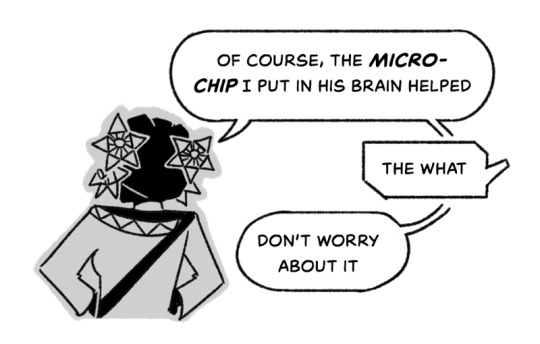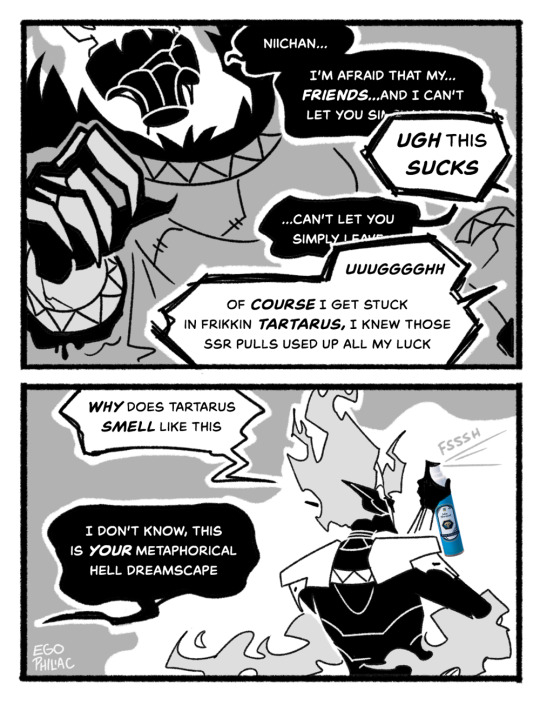#technology books
Explore tagged Tumblr posts
Text
Explore Future of Technology Books Today
Books on the future of technology offer invaluable insights into upcoming trends, innovations, and disruptions in various industries. By delving into topics like AI, blockchain, and biotech, they empower readers to anticipate and adapt to rapid changes, fostering a competitive edge and enabling informed decision-making in an increasingly digital world. Technology Visions provides for future of technology books. Contact us today

0 notes
Text
I love you DVDs, I love you VHS Tapes, I love you Cassettes, I love you Records, I love you CDs, I love you Books, I love you Journals
#Please please don’t let these things become erased because of technology#I’m BEGGING#txt#please#books#dvds#cassettes#vhs tapes#records#vinyls#vinyl records
18K notes
·
View notes
Text



Yayoi Kusama: ‘Longing For Eternity’ (2017)
#yayoi kusama#art#japan#artist#lights#dreamcore#tech#techcore#technology#books#art book#art exhibition#japanese artist
7K notes
·
View notes
Text


today I learned about "thumb book holders" in my search for ways to read giant fantasy paperbacks without injuring myself, and then I realized I could make one out of the 20-year-old polymer clay that I had lying around... so I did. and god DAMN it's more effective than I ever expected, so I thought everyone should know about them. You can get really cheap mass-produced ones but this was fun to make and I'll probably make more ᕕ( ᐛ )���
#crafts#thumb book holder#i made it to look like marbled redware#accessibility#disability#assistive technology
9K notes
·
View notes
Video
tumblr
wichita public library has the most delightful short story dispenser at the airport!
#video#tiktok#tiktoks#book#books#reading#airport#airports#aeroport#aeroports#wichita#library#libraries#technology#kimengineers
27K notes
·
View notes
Text




don't think I'm not still deep in the episode 7 brainrot. because OH BOY AM I
(also one more extremely, obnoxiously self-referential thing, I'm -- I'm so sorry)

#art#twisted wonderland#twisted wonderland spoilers#twisted wonderland episode 7 spoilers#twisted wonderland episode 7 part 7 spoilers#twisted wonderland book 7#twisted wonderland book 7 part 7 spoilers#and so ends the saga#(this time for real i promise)#malleus post-episode 7: shroud...i should have heeded your warnings...now tell me more about how i may hunt this elusive 'snipe'#alas poor puppies :( i'm glad they had a little aside about how they can fix them after this whole mess#let ortho have his dogs!#man i love that this has come down to malleus vs technology though#MY FAVORITE#ortho: you can destroy the shell that links me to this mortal world...but can you select the CORRECT DOWNLOAD LINK???#malleus: (downloads a billion viruses and dies instantly)#also i'm probably the only one who thinks idia complaining about his own mental tartarus prison is funny#but there we go#idia has two modes and two modes only#he's either in the middle of a metaphor where he finally forgives himself for his brother's death and takes charge of his own destiny#or he's like 'fuck yeah i'm about to get isekai'd into the internet! (immediately falls over making dying whale sounds)'#wait no he has a third mode: actively suffocating because silver and sebek won't stop squishing him#look he's just delightful no matter what's going on okay
4K notes
·
View notes
Text

My latest Guardian Books cartoon.
5K notes
·
View notes
Text

3K notes
·
View notes
Text



#free palestine#palestine#israel#AI#lapd#democrats#republicans#politics#books#technology#military#social media#Science#blm
462 notes
·
View notes
Text
the shittiest human art will always be leagues better than the best ai "art". a child's finger paintings and macaroni crafts will always be better than a computer's subpar attempt at recreating the starry night. your stick figures and smiley faces will always surpass an algorithm's bastardized boticelli painting. the most mediocre hallmark movie will always be better than whatever bullshit sora churns out. the most cringeworthy "i'm 14 and this is deep" notes app poetry will always be better than whatever chatgpt can come up with. always
#ai art#ai generated#ai image#ai artwork#artificial intelligence#chatgpt#technology#artistic parallels#artwork#art#anti ai#fuck ai#fuck ai art#stop ai#protect your art#anti ai art#writing#creative writing#film#writers strike#sag afra strike#wga strike#feelings#literature#books and literature#dark academia#light academia#chaotic academia
886 notes
·
View notes
Text
In the twentieth century, few would have ever defined a truck driver as a ‘cognitive worker’, an intellectual. In the early twenty-first, however, the application of artificial intelligence (AI) in self-driving vehicles, among other artefacts, has changed the perception of manual skills such as driving, revealing how the most valuable component of work in general has never been just manual, but has always been cognitive and cooperative as well. Thanks to AI research – we must acknowledge it – truck drivers have reached the pantheon of intelligentsia. It is a paradox – a bitter political revelation – that the most zealous development of automation has shown how much ‘intelligence’ is expressed by activities and jobs that are usually deemed manual and unskilled, an aspect that has often been neglected by labour organisation as much as critical theory.
– Matteo Pasquinelli, The Eye of the Master: A Social History of Artificial Intelligence (2023)
#Matteo Pasquinelli#The Eye of the Master#Social History#Social theory#AI#Artificial Intelligence#Science#Scientism#Labour#Capitalism#Marxism#Malaise#Computer Science#Technology#Words#Quote#Writing#Text#Reading#Books
154 notes
·
View notes
Text

#curators on tumblr#tea#teapot#tea cup#tea set#teacup#candle#candlelight#candes#book#books#journal#diary#study#studying#literature#laptop#technology#writing#cozycore
955 notes
·
View notes
Text


Pushed myself to go outside and do something different today, so I ran some errands and visited a new bookshop (didn't buy anything, and it was alright, too commercial/trendy for my taste idk). Read the whole bus ride, and I'm loving this book 🌻
Otherwise I've been working on my app, I updated my CV and linkedin, I've watched all available episodes of severance (so many unanswered questions I love it), and mostly I've been resting <3
+ some feelings of inadequacy and loneliness, but ah well, it's expected when I have more time to think.
#uni#life#studyblr#study#academia#codeblr#information technologies#coding#books#bookblr#studyspo#web development#web dev#reading
113 notes
·
View notes
Text

Why would you—That's not—I just wanted to ask for help, why did you have to go and make it awkward???
[First] Prev <–-> Next
#poorly drawn mdzs#mdzs#wei wuxian#xue yang#Its such a relief to not have to draw so many characters once again.#Redrawing the specific font from the English translated mdzs books was surprisingly fun!#Maybe I'm alone in this...but I think characters switching to a different font of speech for *emphasis* is peak comedy#you can't communicate voice changes of sound very well in non audio forms so this is the best I can do.#Anyways...rip Xue Yang. You finally meet your idol and he brushes you off#Rather— he doesn't live up to the expectations you built in your head#Kind of an on going issue there Jester (I refuse to call him king or sir)#XY is constantly making people out to be the versions he needed them to be to feel justified in his actions#but struggles to pivot when confronted with the fact that these ppl are *more* than just one surface reading!#wwx doesn't actually think xy is flirting. He's just tired of all the fake fans + wants to get out of this convo.#button mashing the A button to skip the unskippable cutscene#Lan Wangji is in the next comic btw. I've missed him dearly. I'm sorry he's been gone so long </3#edit: poorly spelt MDZS strikes again. This is why I need more time to write my comics. So I can actually proofread B*(#edit2: I cast 'Power of Technology' and fixed my error. Everyone reblog this version instead please
2K notes
·
View notes
Text
Prison-tech is a scam - and a harbinger of your future

If you'd like an essay-formatted version of this post to read or share, here's a link to it on pluralistic.net, my surveillance-free, ad-free, tracker-free blog:
https://pluralistic.net/2024/02/14/minnesota-nice/#shitty-technology-adoption-curve

Here's how the shitty technology adoption curve works: when you want to roll out a new, abusive technology, look for a group of vulnerable people whose complaints are roundly ignored and subject them to your bad idea. Sand the rough edges off on their bodies and lives. Normalize the technological abuse you seek to inflict.
Next: work your way up the privilege gradient. Maybe you start with prisoners, then work your way up to asylum seekers, parolees and mental patients. Then try it on kids and gig workers. Now, college students and blue collar workers. Climb that curve, bit by bit, until you've reached its apex and everyone is living with your shitty technology:
https://pluralistic.net/2021/02/24/gwb-rumsfeld-monsters/#bossware
Prisoners, asylum seekers, drug addicts and other marginalized people are the involuntary early adopters of every form of disciplinary technology. They are the leading indicators of the ways that technology will be ruining your life in the future. They are the harbingers of all our technological doom.
Which brings me to Minnesota.
Minnesota is one of the first states make prison phone-calls free. This is a big deal, because prison phone-calls are a big business. Prisoners are literally a captive audience, and the telecommunications sector is populated by sociopaths, bred and trained to spot and exploit abusive monopoly opportunities. As states across America locked up more and more people for longer and longer terms, the cost of operating prisons skyrocketed, even as states slashed taxes on the rich and turned a blind eye to tax evasion.
This presented telco predators with an unbeatable opportunity: they approached state prison operators and offered them a bargain: "Let us take over the telephone service to your carceral facility and we will levy eye-watering per-minute charges on the most desperate people in the world. Their families – struggling with one breadwinner behind bars – will find the money to pay this ransom, and we'll split the profits with you, the cash-strapped, incarceration-happy state government."
This was the opening salvo, and it turned into a fantastic little money-spinner. Prison telco companies and state prison operators were the public-private partnership from hell. Prison-tech companies openly funneled money to state coffers in the form of kickbacks, even as they secretly bribed prison officials to let them gouge their inmates and inmates' families:
https://www.motherjones.com/politics/2019/02/mississippi-corrections-corruption-bribery-private-prison-hustle/
As digital technology got cheaper and prison-tech companies got greedier, the low end of the shitty tech adoption curve got a lot more crowded. Prison-tech companies started handing out "free" cheap Android tablets to prisoners, laying the groundwork for the next phase of the scam. Once prisoners had tablets, prisons could get rid of phones altogether and charge prisoners – and their families – even higher rates to place calls right to the prisoner's cell.
Then, prisons could end in-person visits and replace them with sub-skype, postage-stamp-sized videoconferencing, at rates even higher than the voice-call rates. Combine that with a ban on mailing letters to and from prisoners – replaced with a service that charged even higher rates to scan mail sent to prisoners, and then charged prisoners to download the scans – and prison-tech companies could claim to be at the vanguard of prison safety, ending the smuggling of dope-impregnated letters and other contraband into the prison system.
Prison-tech invented some wild shit, like the "digital stamp," a mainstay of industry giant Jpay, which requires prisoners to pay for "stamps" to send or receive a "page" of email. If you're keeping score, you've realized that this is a system where prisoners and their families have to pay for calls, "in-person" visits, handwritten letters, and email.
It goes on: prisons shuttered their libraries and replaced them with ebook stores that charged 2-4 times the prices you'd pay for books on the outside. Prisoners were sold digital music at 200-300% markups relative to, say, iTunes.
Remember, these are prisoners: locked up for years or decades, decades during which their families scraped by with a breadwinner behind bars. Prisoners can earn money, sure – as much as $0.89/hour, doing forced labor for companies that contract with prisons for their workforce:
https://www.prisonpolicy.org/blog/2017/04/10/wages/
Of course, there's the odd chance for prisoners to make really big bucks – $2-5/day. All they have to do is "volunteer" to fight raging wildfires:
https://www.hcn.org/articles/climate-desk-wildfire-california-incarcerated-firefighters-face-dangerous-work-low-pay-and-covid19/
So those $3 digital music tracks are being bought by people earning as little as $0.10/hour. Which makes it especially galling when prisons change prison-tech suppliers, whereupon all that digital music is deleted, wiping prisoners' media collection out – forever (literally, for prisoners serving life terms):
https://www.eff.org/deeplinks/2018/08/captive-audience-how-floridas-prisons-and-drm-made-113m-worth-prisoners-music
Let's recap: America goes on a prison rampage, locking up ever-larger numbers of people for ever-longer sentences. Once inside, prisoners had their access to friends and family rationed, along with access to books, music, education and communities outside. This is very bad for prisoners – strong ties to people outside is closely tied to successful reentry – but it's great for state budgets, and for wardens, thanks to kickbacks:
https://www.prisonpolicy.org/blog/2021/12/21/family_contact/
Back to Minnesota: when Minnesota became the fourth state in the USA where the state, not prisoners, would pay for prison calls, it seemed like they were finally breaking the vicious cycle in which every dollar ripped off of prisoners' family paid 40 cents to the state treasury:
https://www.kaaltv.com/news/no-cost-phone-calls-for-those-incarcerated-in-minnesota/
But – as Katya Schwenk writes for The Lever – what happened next is "a case study in how prison communication companies and their private equity owners have managed to preserve their symbiotic relationship with state corrections agencies despite reforms — at the major expense of incarcerated people and their families":
https://www.levernews.com/wall-streets-new-prison-scam/
Immediately after the state ended the ransoming of prisoners' phone calls, the private-equity backed prison-tech companies that had dug their mouth-parts into the state's prison jacked up the price of all their other digital services. For example, the price of a digital song in a Minnesota prison just jumped from $1.99 to $2.36 (for prisoners earning as little as $0.25/hour).
As Paul Wright from the Human Rights Defense Center told Schwenk, "The ideal world for the private equity owners of these companies is every prisoner has one of their tablets, and every one of those tablets is hooked up to the bank account of someone outside of prison that they can just drain."
The state's new prison-tech supplier promises to double the amount of kickbacks it pays the state each year, thanks to an aggressive expansion into games, money transfers, and other "services." The perverse incentive isn't hard to spot: the more these prison-tech companies charge, the more kickbacks they pay to the prisons.
The primary prison-tech company for Minnesota's prisons is Viapath (nee Global Tel Link), which pioneered price-gouging on in-prison phone calls. Viapath has spent the past two decades being bought and sold by different private equity firms: Goldman Sachs, Veritas Capital, and now the $46b/year American Securities.
Viapath competes with another private equity-backed prison-tech giant: Aventiv (Securus, Jpay), owned by Platinum Equity. Together, Viapath and Aventiv control 90% of the prison-tech market. These companies have a rap-sheet as long as your arm: bribing wardens, stealing from prisoners and their families, and recording prisoner-attorney calls. But these are the kinds of crimes the state punishes with fines and settlements – not by terminating its contracts with these predators.
These companies continue to flout the law. Minnesota's new free-calls system bans prison-tech companies from paying kickbacks to prisons and prison-officials for telcoms services, so the prison-tech companies have rebranded ebooks, music, and money-transfers as non-communications products, and the kickbacks are bigger than ever.
This is the bottom end of the shitty technology adoption curve. Long before Ubisoft started deleting games that you'd bought a "perpetual license" for, prisoners were having their media ganked by an uncaring corporation that knew it was untouchable:
https://www.youtube.com/watch?v=VIqyvquTEVU
Revoking your media, charging by the byte for messaging, confiscating things in the name of security and then selling them back to you – these are all tactics that were developed in the prison system, refined, normalized, and then worked up the privilege gradient. Prisoners are living in your technology future. It's just not evenly distributed – yet.
As it happens, prison-tech is at the heart of my next novel, The Bezzle, which comes out on Feb 20. This is a followup to last year's bestselling Red Team Blues, which introduced the world to Marty Hench, a two-fisted, hard-bitten, high-tech forensic accountant who's spent 40 years busting Silicon Valley finance scams:
https://us.macmillan.com/books/9781250865878/thebezzle
In The Bezzle, we travel with Marty back to the mid 2000s (Hench is a kind of tech-scam Zelig and every book is a standalone tale of high-tech ripoffs from a different time and place). Marty's trying to help his old pal Scott Warms, a once-high-flying founder who's fallen prey to California's three-strikes law and is now facing decades in a state pen. As bad as things are, they get worse when the prison starts handing out "free" tablet and closing down the visitation room, the library, and the payphones.
This is an entry to the thing I love most about the Hench novels: the opportunity to turn all this dry, financial skullduggery into high-intensity, high-stakes technothriller plot. For me, Marty Hench is a tool for flensing the scam economy of all its layers of respectability bullshit and exposing the rot at the core.
It's not a coincidence that I've got a book coming out in a week that's about something that's in the news right now. I didn't "predict" this current turn – I observed it. The world comes at you fast and technology news flutters past before you can register it. Luckily, I have a method for capturing this stuff as it happens:
https://pluralistic.net/2021/05/09/the-memex-method/
Writing about tech issues that are long-simmering but still in the periphery is a technique I call "predicting the present." It's the technique I used when I wrote Little Brother, about out-of-control state surveillance of the internet. When Snowden revealed the extent of NSA spying in 2013, people acted as though I'd "predicted" the Snowden revelations:
https://www.wired.com/story/his-writing-radicalized-young-hackers-now-he-wants-to-redeem-them/
But Little Brother and Snowden's own heroic decision have a common origin: the brave whistleblower Mark Klein, who walked into EFF's offices in 2006 and revealed that he'd been ordered by his boss at AT&T to install a beam-splitter into the main fiber trunk so that the NSA could illegally wiretap the entire internet:
https://www.eff.org/document/public-unredacted-klein-declaration
Mark Klein inspired me to write Little Brother – but despite national press attention, the Klein revelations didn't put a stop to NSA spying. The NSA was still conducting its lawless surveillance campaign in 2013, when Snowden, disgusted with NSA leadership for lying to Congress under oath, decided to blow the whistle again:
https://apnews.com/article/business-33a88feb083ea35515de3c73e3d854ad
The assumption that let the NSA get away with mass surveillance was that it would only be weaponized against the people at the bottom of the shitty technology adoption curve: brown people, mostly in other countries. The Snowden revelations made it clear that these were just the beginning, and sure enough, more than a decade later, we have data-brokers sucking up billions in cop kickbacks to enable warrantless surveillance, while virtually following people to abortion clinics, churches, and protests. Mass surveillance is chugging its way up the shitty tech adoption curve with no sign of stopping.
Like Little Brother, The Bezzle is intended as a kind of virtual flythrough of what life is like further down on that curve – a way for readers who have too much agency to be in the crosshairs of a company like Viapath or Avently right now to wake up before that kind of technology comes for them, and to inspire them to take up the cause of the people further down the curve who are mired in it.
The Bezzle is an intense book, but it's also a very fun story – just like Little Brother. It's a book that lays bare the internal technical workings of so many scams, from multi-level marketing to real-estate investment trusts, from music royalty theft to prison-tech, in the course of an ice-cold revenge plot that keeps twisting to the very last page.
It'll drop in six days. I hope you'll check it out:
https://us.macmillan.com/books/9781250865878/thebezzle
#pluralistic#the bezzle#marty hench#books#prison-tech#scams#jpay#securus#minnesota#prisones#shitty technology adoption curve#drm#enshittification#kickbacks#corruption#private equity#viapath#global tel link#bribery#aventiv#disciplinary technology#fcc#predicting the present#carceral state
588 notes
·
View notes
Text









💛 leftover stims 🌸
(as always inspired by helium-stims)
🌸-💛-🌸 / 💛-🌸-💛 / 🌸-💛-🌸
#stim#stimboard#leftover#pink#sfw#pastel#green#purple#white#blue#keyboards#typing#technology#whipped body butter#lotion#nail art#long nails#hands#people#flowers#petals#trains#books#fake food#food#pens#stationery#utensils#ishy gifs#postish
75 notes
·
View notes